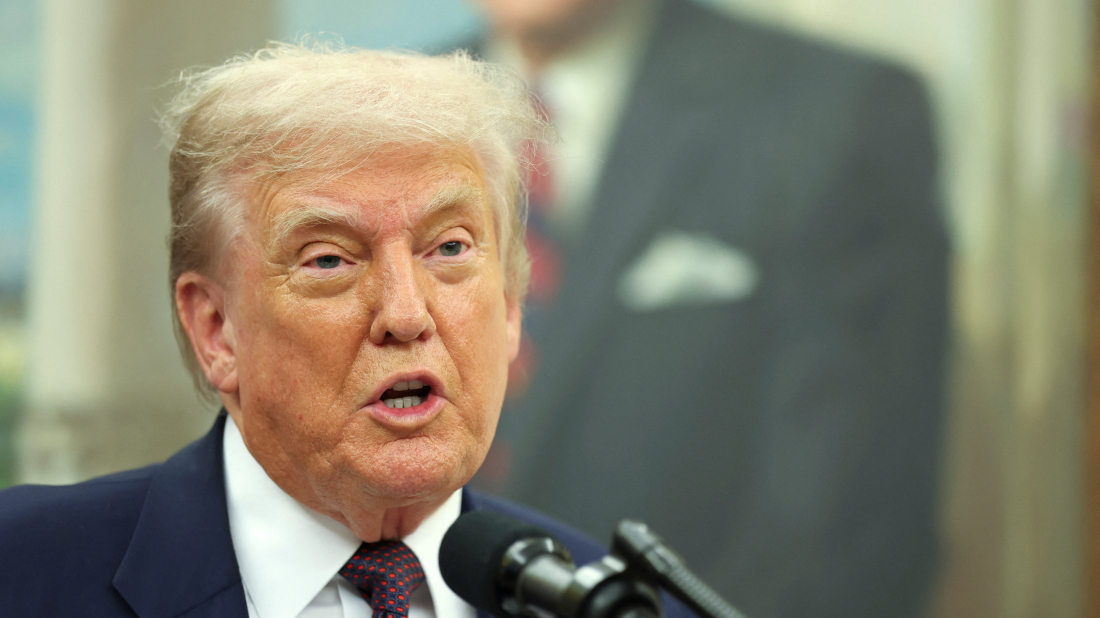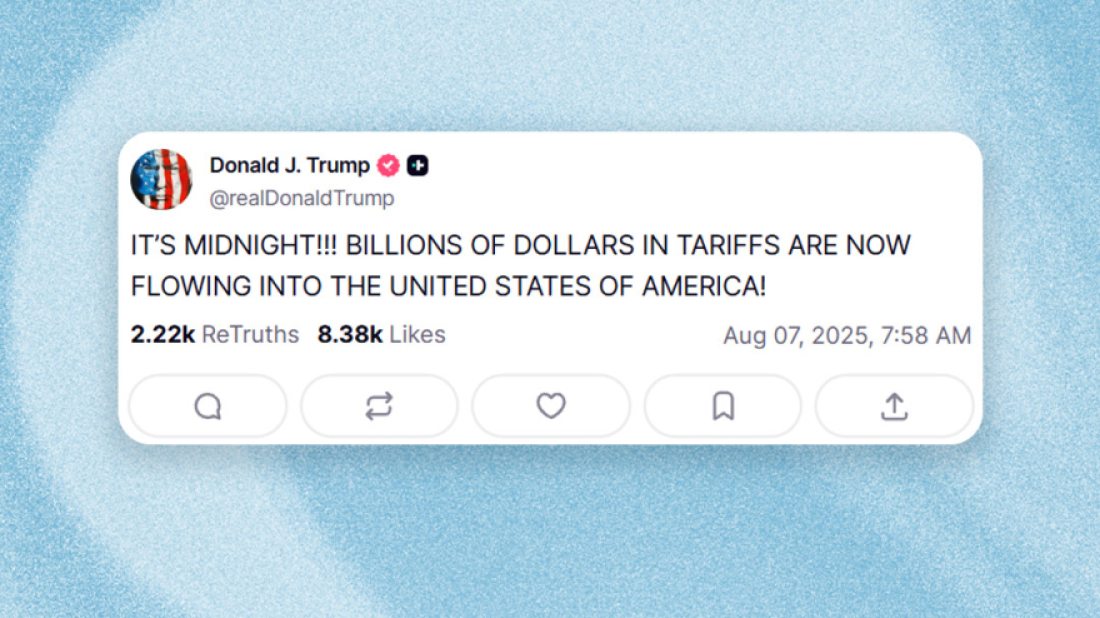Trump gives ICE more powers to detain refugees awaiting green cards
The Trump administration has given immigration officers wider powers to detain legal refugees awaiting green cards, ordering their return to custody f...

More tariffs, more tension — President Donald Trump has triggered a sweeping new round of import duties, hitting 69 countries and pressurising major economies. The move comes as he celebrated his excitement on Truth Social late Wednesday about the billions of dollars expected to flow into the U.S.
On Thursday, 7 August, higher tariffs officially took effect as U.S. Customs and Border Protection began collecting the increased duties.

The tariffs, which range from 10% to 50%, are part of Trump’s broader strategy to lower the U.S. trade deficit while seeking to avoid major supply chain disruptions, inflation spikes, and retaliatory measures from trade partners.
Goods already in transit before the midnight deadline can still enter the U.S. under previous, lower tariff rates if they arrive by 5 October, according to a recent CBP advisory.
This tariff plan follows weeks of intense negotiations and speculation. While many imports faced a 10% base duty since April, the rates have now been significantly increased—50% on goods from Brazil, 39% from Switzerland, 35% from Canada, and 25% from India.
Additionally, Trump announced a separate 25% tariff on Indian goods set to begin in 21 days, citing India’s continued purchases of Russian oil as the justification for this targeted tariff.
New tariffs
Meanwhile President Trump has said he will impose a tariff of about 100% on imports of semiconductors but offered up a big exemption - it will not apply to companies that are manufacturing in the U.S. or have committed to do so.
The move is part of Trump's efforts to bring manufacturing back to the United States, and his remarks on Wednesday were made in tandem with an announcement that Apple, would be investing an additional $100 billion in its home market.
The comments were, however, not a formal tariff announcement, and much remains unclear about how companies and countries around the world will be impacted.
Trump's mention of the proposed 100% rate for chips came in just ahead of U.S. levies of 10% to 50% kicking in on Thursday for many goods from dozens of trading partners. Rates on semiconductors and other key tech goods have been the subject of a U.S. national security probe - the results of which are expected to be announced by mid-August.
Trump's Wednesday remarks produced an immediate flurry of reactions from concerned countries and business lobbies.
South Korea's top trade envoy said on Thursday that major chipmakers Samsung Electronics and SK Hynix will not be subject to 100% tariffs, and South Korea will have the most favourable levies on semiconductors under a trade deal between Washington and Seoul.
Samsung and SK Hynix declined to comment.
On the other end of the spectrum, the president of the Philippine semiconductor industry, Dan Lachica, said Trump's plan would be "devastating" for his country.
In Malaysia, which is a big player in chip testing and packaging globally, trade minister Tengku Zafrul Aziz warned parliament his country "will risk losing a major market in the United States if its products become less competitive as a result of the imposition of these tariffs."
The drumbeats have finally faded at the Marquês de Sapucaí, bringing the competitive phase of the Rio Carnival 2026 to a dazzling close. Over two marathon nights of spectacle, the twelve elite schools of the "Special Group" transformed the Sambadrome into a riot of colour.
Peru’s Congress has voted to censure and remove José Enrique Jeri Ore from his posts as President of Congress and acting President of the Republic, just four months into his tenure, citing undisclosed meetings with Chinese businessmen and alleged hiring irregularities.
France celebrated Olympic gold in the men’s biathlon relay in Anterselva on Tuesday (17 February), following a thrilling race marked by an electric atmosphere at the stadium.
Qarabağ FK are facing Newcastle United in the UEFA Champions League play-off round on Wednesday evening in Baku, in what will be the first UEFA competition meeting between the two clubs.
Iranian officials say more than 300 undocumented Afghan migrants have been rescued after being stranded in cold and rain near the border district of Taybad, in the northeastern Razavi Khorasan province.
The Trump administration has given immigration officers wider powers to detain legal refugees awaiting green cards, ordering their return to custody for renewed vetting one year after entering the U.S.
Peruvian lawmakers elected Jose Balcazar as the country's new interim president on Wednesday (18 February) ahead of general elections in April.
The Telegram messaging app has dismissed allegations by the Russian government that its encryption has been breached by foreign intelligence services saying that it's not found any breaches of its encryption.
A South Korean court on Thursday sentenced ex-President Yoon Suk Yeol to life in prison for leading a failed 2024 martial law insurrection, making him the first elected leader in the country’s democratic era to receive the maximum sentence.
Russian President Vladimir Putin met Cuban Foreign Minister Bruno Rodriguez in the Kremlin on Wednesday, telling him that new restrictions imposed on the communist-run island were unacceptable.
You can download the AnewZ application from Play Store and the App Store.

What is your opinion on this topic?
Leave the first comment